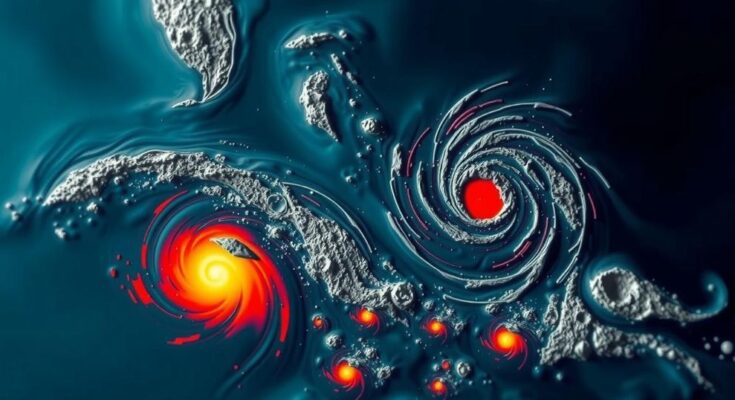A 6.8 magnitude earthquake struck eastern Cuba on Sunday, following hurricanes and blackouts that have heavily impacted the island. The quake, felt widely including in Santiago, left residents shaken, but there were no reports of serious damage or injuries. This disaster compounds the existing challenges for Cubans, who have endured prior hurricanes and an ongoing energy crisis, resulting in widespread protests due to societal dissatisfaction.
On Sunday, a 6.8 magnitude earthquake struck eastern Cuba, compounding the challenges the island has faced following recent hurricanes and significant blackouts. The United States Geological Survey identified the quake’s epicenter as being approximately 25 miles south of Bartolomé Masó. Citizens across eastern Cuba, particularly in Santiago de Cuba, felt the tremor, which prompted many to evacuate their homes and seek safety in the streets. Fortunately, there have been no immediate reports of property damage or injuries, although residents noted experiencing aftershocks and displayed evident anxiety. This seismic event occurred in the wake of Category 3 Hurricane Rafael, which recently devastated western Cuba with powerful winds, leaving the population struggling with widespread power outages and extensive damage to infrastructure. In recent weeks, Cuba has endured prolonged blackouts exacerbated by an ongoing energy crisis, coupled with the impact of multiple hurricanes, leading to an atmosphere of distress and unrest among the populace. Citizens have expressed their dissatisfaction through small demonstrations, highlighting the increased hardships they are facing post-disaster.
Cuba has faced a series of severe natural and systemic crises leading up to the recent earthquake. In October, the island experienced extended blackouts due to an energy crisis, followed by the devastating effects of a hurricane that resulted in casualties and extensive property damage. Most recently, Hurricane Rafael further crippled the western part of the island, knocking out electricity for many residents. The cumulative effect of these disasters has instigated a wave of protests amid a population grappling with adversity, reflecting the mounting economic and infrastructural strains.
The recent earthquake in eastern Cuba adds yet another layer of distress for residents already contending with the aftermath of hurricanes and ongoing blackouts. While immediate damage and injuries from the quake remain unreported, the situation highlights the increasing difficulties faced by Cubans in the wake of natural disasters. This sequence of events has sparked rising discontent, signaling urgent needs for relief and long-term solutions to the energy crisis.
Original Source: abcnews.go.com




